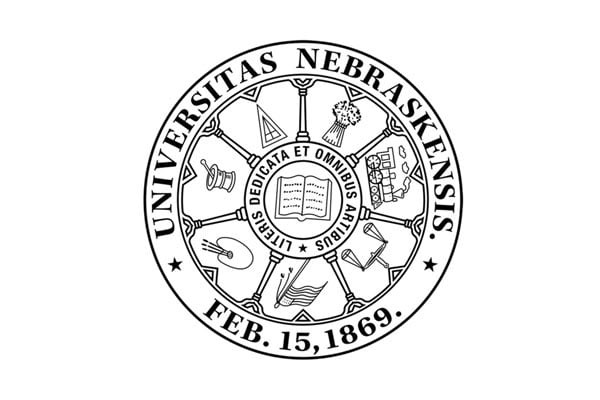From the Office of the President: Nebraska rises among world’s best for earning patents
Continued excellence in innovation helped the University of Nebraska improve its ranking among the world’s leading academic institutions for earning patents.
In a recent report from the National Academy of Inventors, the NU system ranks at No. 73 worldwide after earning 46 U.S. utility patents in 2023. Nebraska was No. 79 in 2022 and has now been included in the top 100 list for seven consecutive years.
Among U.S. institutions, Nebraska is No. 55. Within the growing Big Ten, Nebraska is tied with Indiana and Rutgers, ahead of Michigan State and Penn State. Iowa and Oregon are not ranked in the top 100.
“This is further proof that together as one team Nebraska can compete with the best of the best,” said University of Nebraska Interim President Chris Kabourek. “I’m incredibly proud that the talents and creativity of our faculty are being recognized in this way. Not only does their work position Nebraska in elite company, but more importantly, the discoveries of our faculty are growing our economy and improving the lives of Nebraskans and people around the world.”
Patents are granted by the U.S. Patent and Trademark Office to the university’s technology transfer offices — NUtech Ventures at the University of Nebraska-Lincoln, and UNeMed Corp. at UNMC and the University of Nebraska at Omaha. These patents deliver innovation in key areas, including health care, agriculture, engineering and biotechnology, to the marketplace. They result in new startup companies, jobs and university-licensed products that grow the Nebraska economy and improve quality of life worldwide.
“Improving Nebraska’s place in this ranking reflects the commitment of our faculty to pursue innovative ideas that deliver real-world solutions,” UNL Chancellor Rodney D. Bennett said. “The positive impacts of this research are incredible — launching startups companies, generating local jobs and offering career-shaping lab experiences to our students that have them ready to work on day one.
“This is exactly the kind of excellence that Nebraska should expect from its flagship, land-grant institution.”
Collaboration between UNL and UNMC researchers continues to drive Nebraska’s strong ranking. Of the 46 patents earned across the NU system in 2023, six were awarded to Virtual Incision, the faculty-led startup that successfully developed and delivered the MIRA surgical robot to the marketplace. The project, a UNL-UNMC collaboration, was founded in 2005.
To date, the Virtual Incision portfolio includes more than 200 patents and patent applications. In recent weeks, co-founder Shane Farritor, PhD, of UNL, and his colleagues successfully completed a simulated remote surgery with a specialized device aboard the International Space Station and earned final approvals from the Food and Drug Administration.
Additional Husker-led patents earned include awards for Ozan Ciftci, PhD, and Barry Chin Li Cheung, PhD.
Dr. Ciftci, associate professor of engineering, is using organic processing of lipids to produce and improve novel food products. The work includes future development 3-D printed foods that can meet individualized nutritional needs.
Dr. Cheung, associate professor of chemistry, is focused on multiple applications of cerium oxide. His most recent patent is for a novel procedure that produces nanoparticles that can be used in gas sensors, optical devices, ultraviolet radiation blockers and glass polishers.
At UNMC, another surgery-related patent, for a device called the Aquablade, was developed by Jason MacTaggart, MD, and Alexey Kamenskiy, PhD. AquaBlade is a device that uses a specialized cutting tool that employs a high-pressure water jet to repair life-threatening tears in artery walls and also could help remove previously deployed stents.
“Innovation is a key facet in any forward-looking enterprise, but especially in health care,” UNMC Chancellor Jeffrey Gold, MD, said. “The patents received by UNMC scientists and clinicians set a blueprint, not only for the lifesaving and life-transforming new discoveries of diagnostics, medications and devices they create, but for a path to improved health outcomes for citizens of Nebraska, the United States and the world. This defines the ‘bench to bedside’ research at UNMC.”
Another pair of UNMC patents relate to another UNMC startup, Exavir Therapeutics, which was created on the innovative work of Howard Gendelman, MD, and Benson Edagwa, PhD. Exavir is focused on developing ultra-long acting therapies for the treatment of HIV. Current treatment regimens for HIV often require a strict schedule of daily doses. But Exavir’s technology could transform HIV treatment to just a single dose once or twice a year.
Another patent was issued for UNMC researcher Dong Wang’s, PhD, drug delivery technology called ProGel, which is liquid at room temperature and becomes a gel when warmed to body temperature. His startup, Ensign Pharmaceutical, currently is developing a ProGel formulation of a common steroid, dexamethasone, for the treatment of osteoarthritis-related pain.
Currently, anti-inflammatory steroids such as dexamethasone are used to provide immediate relief from debilitating pain and swelling caused by osteoarthritis. Unfortunately, the effect is short-lived, providing relief for just a few days. ProGel, however, could extend that effectiveness for months.
Additional UNMC patents in 2023 include new approaches for creating arteovenous fistulas; a new diagnostic for coronary artery disease; an improved method for using CRISPR, a DNA slicing tool common in research applications; new approaches for treating various cancers; and several other devices that range from nanofiber-based materials to a screening tool that helps assess a patient’s risk of complications prior to surgery.
